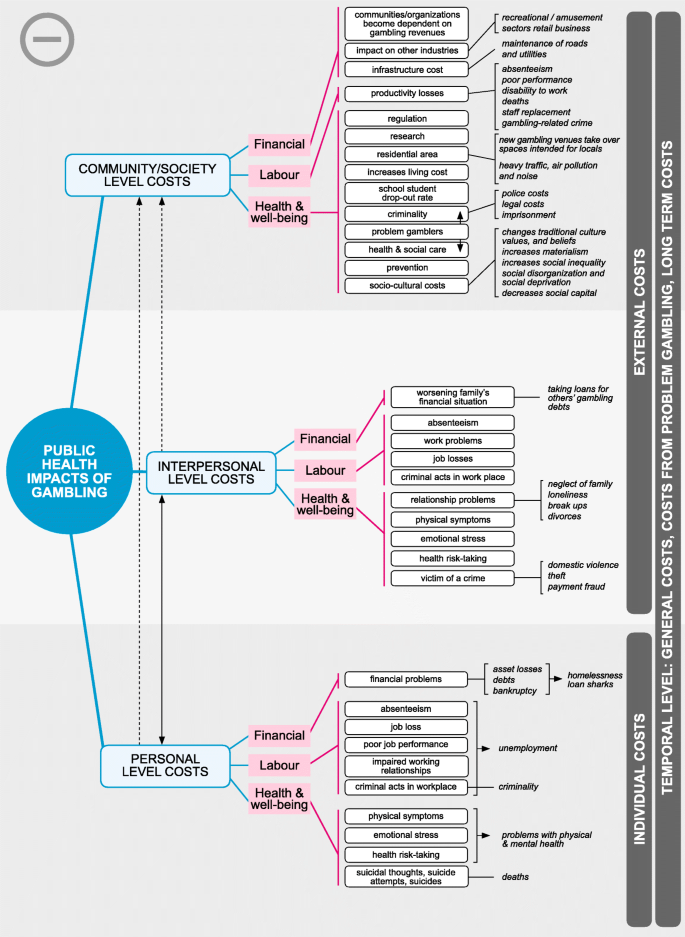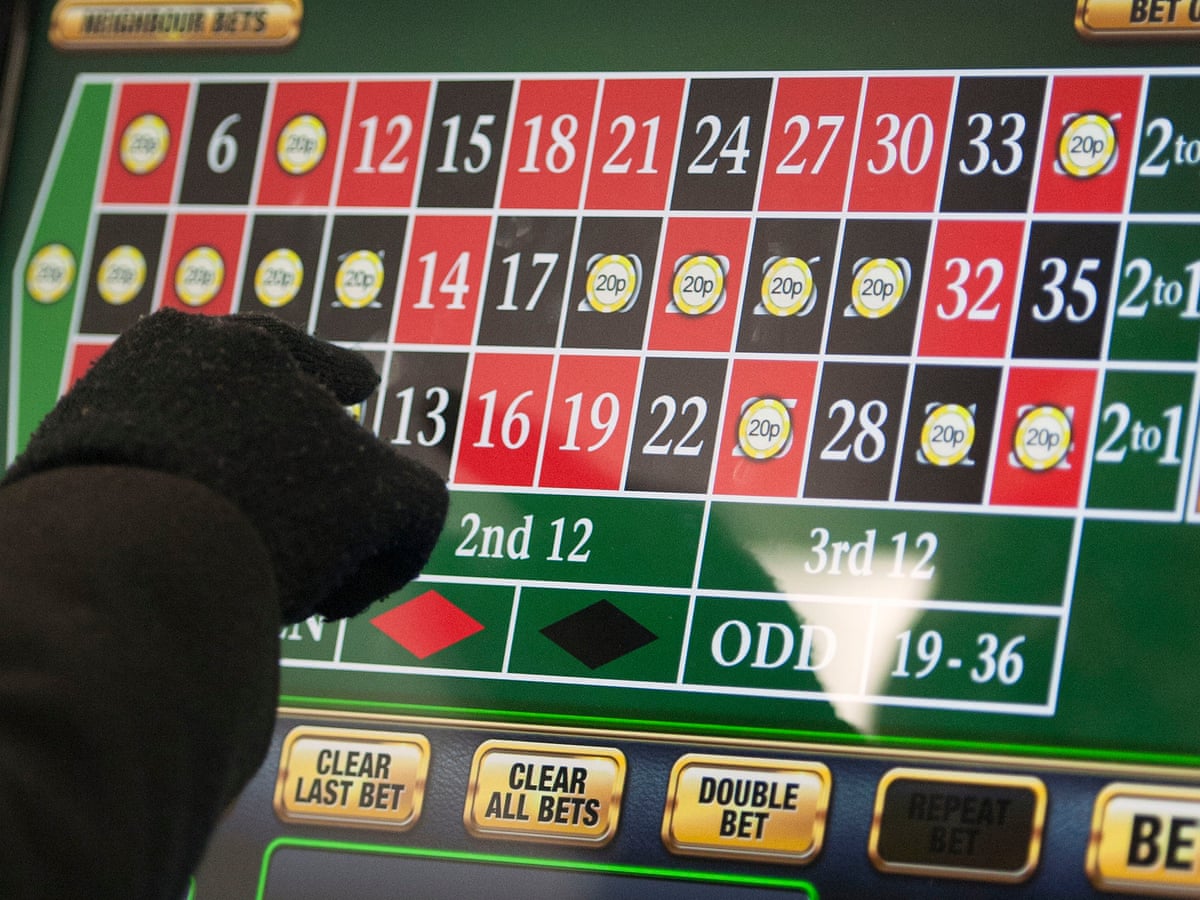By Celeste Blackburn
- Gambling Policy In The Workplace Organization
- Gambling Policy In The Workplace Behavior
- Gambling Policy In The Workplace Definition
- Gambling Policy In The Workplace Violence
- Gambling In The Workplace Policy
- A clear, consistently applied policy defining what activities are prohibited and permitted can go a long way toward ensuring workplace gambling does not spin out of control. Provide awareness training: Without awareness, problem gambling will not be detected. The signs of a gambling problem are seldom identified as gambling related.
- To sum up, we recommend a workplace gambling policy and programmes that adopt a supportive approach and focuses on health promotion and prevention, education and harm reduction strategies.
The purpose of this policy is to increase awareness of problem gambling and to provide guidance for employees and management in addressing problem gambling issues and their effects in the workplace.
Are your employees gambling at work? With the Super Bowl and NCAA basketball tournaments coming up, it's almost a sure bet that at least some employees are gambling on sports during company time, using company equipment. Sometimes, employees don't wait for major sporting event to gamble, instead betting on the Oscars, American Idol, and coworkers' pregnancy due-date pools. While employees see betting pools as harmless fun, employers can be the big losers due to the drain on productivity and resources as well as the legal issues that go with employees gambling at work.
Using APKPure App to upgrade Jackpot Slot Machines - Slots Era™ Vegas Casino, install xapk, fast, free and save your internet data. The description of Jackpot Slot Machines - Slots Era™ Vegas Casino 🏆 Slots Era is a brand new horizon in the world of Vegas Slot Machines 🏆 Try one of the best casino games for Free. Slot era apk.
HR Guide to Employment Law: A Practical Compliance Reference

Productivity takes a time out
In a 2011 Vault survey, 56% of respondents said they spent 30 minutes or less discussing, researching, or making picks for an office betting pool. A few admit to spending considerably more time on office gambling — 4% spent 1-2 hours, 2% spent 2-4 hours, and 1% spent more than 6 hours. Only 63% of survey participants who admitted to gambling at work were willing to reveal how much time they actually spend on it — even in an anonymous survey. A few quotes from survey participants suggest that those in the unaccounted for 37% are spending more time than they want to admit on office pools:
- 'I have seen coworkers not do ANY work at all, ALL day long.'
- 'Almost no work gets done in the office during March.'
- 'Zero office time — that's stealing.'
Now consider this: In 2007, consulting firm Challenger, Gray & Christmas crunched the numbers (mainly figures about the national employment rate and average pay) and estimated that American employers lose up to $16 million for every minute their employees spend focused on the Super Bowl.
Gambling with team spirit
Some employees, employers, and company leaders see office betting pools as a way to foster camaraderie by giving employees a fun outlet to socialize and interact with one another. In the Vault survey, 78% of participants said it was appropriate to have office betting pools and only 22% disagreed. Elaborating, one survey respondent said, 'March Madness is a great team builder, engaging folks from the office, plant floor, shipping/warehouse, remote sales offices, and even a few customers and vendors.'
On the other hand, there are those employees who might agree with the survey participant who complained, 'My office is awash in sinners. Some day a real rain will come and these cubicles shall be cleansed.' While all workplace-gambling dissidents may not take such a hard line, it is a safe bet that the time wasted on these betting pools irks employees who don't participate and instead keep their nose to the grindstone.

Illegal moves
In many states, gambling at work is illegal. For instance, in Kansas it can be a class B misdemeanor. Also, many states have gaming commissions that closely regulate gambling events. In other states, gambling at work resides in very gray legal area. Ego casino no deposit bonus. For instance, in Colorado most gambling is illegal but betting pools in the office are an exception to the definition of illegal gambling so long as the pool is 'incidental to a bona fide social relationship.'
While it's true that local law enforcement probably isn't concerned with an office betting pool, there have been instances to the contrary. Notably, in 2002, a middle manager at AT&T was arrested for allegedly taking a 10 % cut — about $3,000 — from a football office pool in New Jersey. The pool at issue was advertised in office e-mails, and a coworker allegedly turned the employee in to the police. The worker was charged with promoting gambling and faced up to five years in prison. While participants in small office pools with low stakes are unlikely to be arrested, it's never a good idea for a company to condone criminal activity of any kind in the workplace.
Also, there have been several cases in which an employee sued an employer, trying to hold it liable for financial losses. Basically, the employees claimed that employer-approved office betting pools were unavoidable and triggered them to relapse in their gambling addictions, which caused them to lose money. Golden arm craps tournament 2018 bracket.
Could March Madness be a disability?
The National Council on Problem Gambling estimates that two million American adults are pathological gamblers and another four million to eight million qualify as 'problem gamblers.' Given the expanded definition of 'disability' under the Americans with Disabilities Act (ADA), those numbers should give employers a reason to pause and wonder if gambling addiction could be considered a disability.
Gambling Policy In The Workplace Organization
The short answer is 'no.' Congress expressly excluded compulsive gambling, along with kleptomania, pyromania, and various psychological disorders resulting from current drug use, from the ADA's definition of 'disability.' However, there is still room for concern. Employees who are addicted to gambling are more likely to borrow money from coworkers, be distracted from their work, and have attendance problems.
Gambling Policy In The Workplace Behavior

ADA Compliance : Practical Solutions for HR
Best offense is a good policy (defense)
Depending on the laws of the state, an organization that chooses to allow gambling at work should specifically define what is and isn't acceptable in a policy. An organization that chooses to prohibit gambling at work should adopt a strong policy and stick to it. Here are several points to consider when writing a gambling policy:
Gambling Policy In The Workplace Definition

- Define gambling or the type of behavior that is restricted.
- If gambling is illegal in the state, emphasize that point.
- Communicate that gambling can be a problem for employee productivity and morale.
Gambling Policy In The Workplace Violence
Once the policy is in place, it should be distributed to all employees and included in the company handbook. Only 10% of the Vault survey respondents said their employers had a policy on betting pools; 43% said there was no policy; 47% weren't sure.

Productivity takes a time out
In a 2011 Vault survey, 56% of respondents said they spent 30 minutes or less discussing, researching, or making picks for an office betting pool. A few admit to spending considerably more time on office gambling — 4% spent 1-2 hours, 2% spent 2-4 hours, and 1% spent more than 6 hours. Only 63% of survey participants who admitted to gambling at work were willing to reveal how much time they actually spend on it — even in an anonymous survey. A few quotes from survey participants suggest that those in the unaccounted for 37% are spending more time than they want to admit on office pools:
- 'I have seen coworkers not do ANY work at all, ALL day long.'
- 'Almost no work gets done in the office during March.'
- 'Zero office time — that's stealing.'
Now consider this: In 2007, consulting firm Challenger, Gray & Christmas crunched the numbers (mainly figures about the national employment rate and average pay) and estimated that American employers lose up to $16 million for every minute their employees spend focused on the Super Bowl.
Gambling with team spirit
Some employees, employers, and company leaders see office betting pools as a way to foster camaraderie by giving employees a fun outlet to socialize and interact with one another. In the Vault survey, 78% of participants said it was appropriate to have office betting pools and only 22% disagreed. Elaborating, one survey respondent said, 'March Madness is a great team builder, engaging folks from the office, plant floor, shipping/warehouse, remote sales offices, and even a few customers and vendors.'
On the other hand, there are those employees who might agree with the survey participant who complained, 'My office is awash in sinners. Some day a real rain will come and these cubicles shall be cleansed.' While all workplace-gambling dissidents may not take such a hard line, it is a safe bet that the time wasted on these betting pools irks employees who don't participate and instead keep their nose to the grindstone.
Illegal moves
In many states, gambling at work is illegal. For instance, in Kansas it can be a class B misdemeanor. Also, many states have gaming commissions that closely regulate gambling events. In other states, gambling at work resides in very gray legal area. Ego casino no deposit bonus. For instance, in Colorado most gambling is illegal but betting pools in the office are an exception to the definition of illegal gambling so long as the pool is 'incidental to a bona fide social relationship.'
While it's true that local law enforcement probably isn't concerned with an office betting pool, there have been instances to the contrary. Notably, in 2002, a middle manager at AT&T was arrested for allegedly taking a 10 % cut — about $3,000 — from a football office pool in New Jersey. The pool at issue was advertised in office e-mails, and a coworker allegedly turned the employee in to the police. The worker was charged with promoting gambling and faced up to five years in prison. While participants in small office pools with low stakes are unlikely to be arrested, it's never a good idea for a company to condone criminal activity of any kind in the workplace.
Also, there have been several cases in which an employee sued an employer, trying to hold it liable for financial losses. Basically, the employees claimed that employer-approved office betting pools were unavoidable and triggered them to relapse in their gambling addictions, which caused them to lose money. Golden arm craps tournament 2018 bracket.
Could March Madness be a disability?
The National Council on Problem Gambling estimates that two million American adults are pathological gamblers and another four million to eight million qualify as 'problem gamblers.' Given the expanded definition of 'disability' under the Americans with Disabilities Act (ADA), those numbers should give employers a reason to pause and wonder if gambling addiction could be considered a disability.
Gambling Policy In The Workplace Organization
The short answer is 'no.' Congress expressly excluded compulsive gambling, along with kleptomania, pyromania, and various psychological disorders resulting from current drug use, from the ADA's definition of 'disability.' However, there is still room for concern. Employees who are addicted to gambling are more likely to borrow money from coworkers, be distracted from their work, and have attendance problems.
Gambling Policy In The Workplace Behavior
ADA Compliance : Practical Solutions for HR
Best offense is a good policy (defense)
Depending on the laws of the state, an organization that chooses to allow gambling at work should specifically define what is and isn't acceptable in a policy. An organization that chooses to prohibit gambling at work should adopt a strong policy and stick to it. Here are several points to consider when writing a gambling policy:
Gambling Policy In The Workplace Definition
- Define gambling or the type of behavior that is restricted.
- If gambling is illegal in the state, emphasize that point.
- Communicate that gambling can be a problem for employee productivity and morale.
Gambling Policy In The Workplace Violence
Once the policy is in place, it should be distributed to all employees and included in the company handbook. Only 10% of the Vault survey respondents said their employers had a policy on betting pools; 43% said there was no policy; 47% weren't sure.
One participant's response shows that even when employees know about the policy, gambling often still goes on, 'It is not tolerated . . . so you have to do it secretly.' In that case, employers should be prepared to discipline all violators (at least one case taken to the federal level hinged on an employee's claim that he was disciplined for gambling while others of different races were not). The gambling policy also should be coordinated with the organization's discipline program, carving out specific behaviors that are subject to discipline and termination.
Gambling In The Workplace Policy
Game over
Allowing gambling at work — by virtue of not having a policy, not enforcing the policy, promoting gambling, or just ignoring it — leaves an organization open to hits from all sides. Therefore, if gambling at work isn't banned altogether, it should be approached cautiously and thoughtfully.